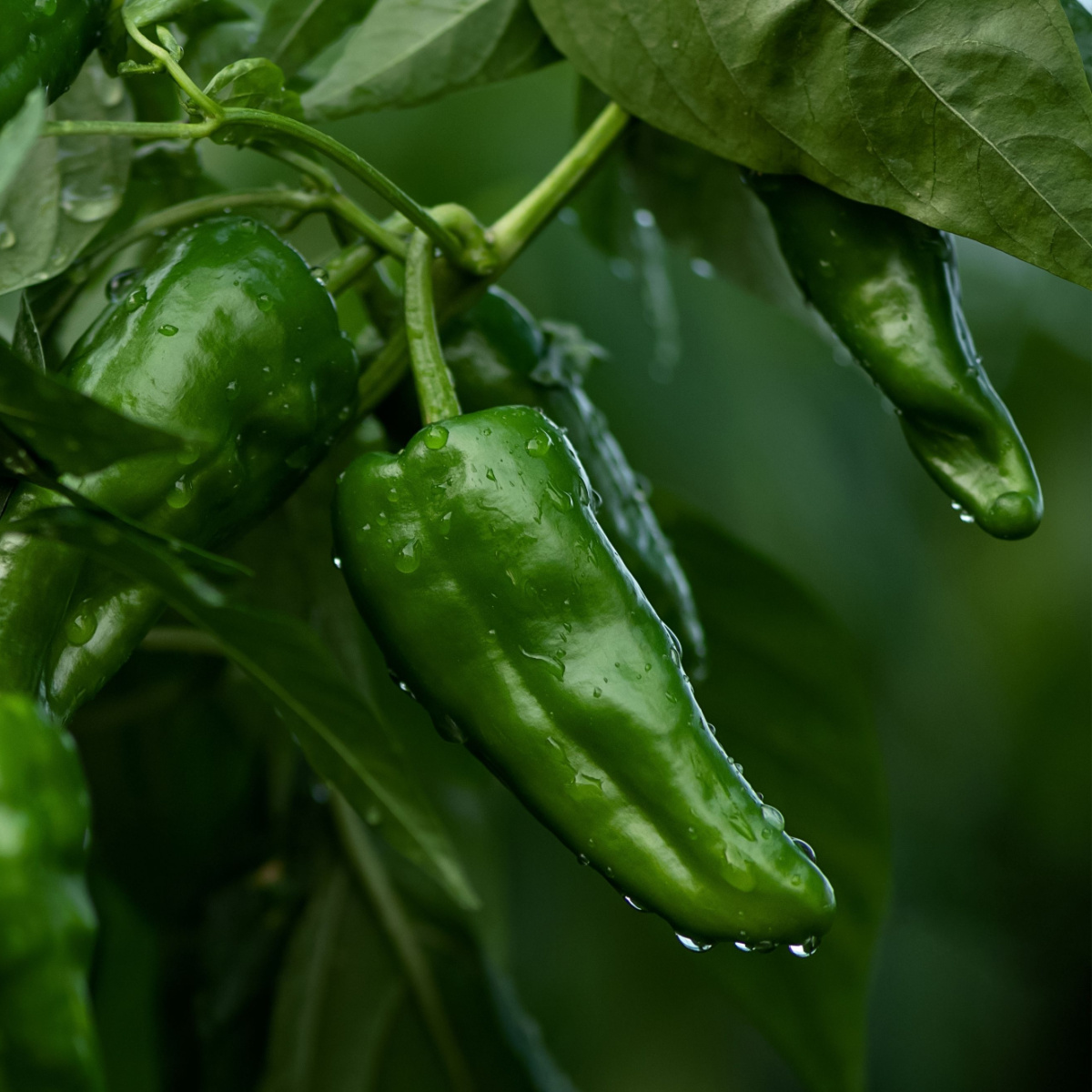Best Fertilizers for Peppers: Take Full Advantage Of Plant Health and Return
Best Fertilizers for Peppers: Take Full Advantage Of Plant Health and Return
Blog Article
Organic Vs. Synthetic Fertilizers: Which Is Best for Nurturing Healthy Pepper Plants?
In the world of supporting healthy and balanced pepper plants, the choice between synthetic and organic fertilizers stands as an essential choice with significant ramifications. While both options aim to provide essential nutrients to sustain plant development, the nuances of their influence on the soil, plant wellness, and the setting stimulate an argument that echoes throughout the gardening community. Recognizing the unique advantages and potential challenges of each fertilizer type is crucial for pepper farmers looking for to optimize their returns while preserving an eco-conscious and lasting method.
Advantages of Organic Plant Foods
Organic fertilizers use a sustainable and environmentally-friendly strategy to beneficial pepper plants, supplying necessary nutrients without making use of artificial chemicals. These natural plant foods are stemmed from organic resources such as compost, manure, bone dish, and seaweed, advertising soil wellness and biodiversity. Unlike synthetic plant foods, organic alternatives release nutrients gradually, guaranteeing a balanced and consistent supply for pepper plants to thrive.
One substantial benefit of natural plant foods is their capability to improve dirt framework and water retention. By boosting soil health and wellness, organic plant foods promote advantageous microbial task, which assists in nutrient uptake by pepper plants. Furthermore, natural fertilizers minimize the danger of chemical run-off, protecting water sources from contamination and guarding the environment.
Furthermore, organic fertilizers add to lasting soil fertility by promoting the development of useful dirt microorganisms. These organisms assist damage down organic matter, releasing nutrients in a type that is conveniently accessible to pepper plants. best fertilizers for peppers. By fostering a healthy dirt ecosystem, organic fertilizers support sustainable pepper growing techniques that profit both plants and the setting
Drawbacks of Synthetic Fertilizers
Synthetic fertilizers, as opposed to their organic counterparts, position different downsides when made use of to nurture pepper plants, impacting both plant health and environmental sustainability. One major disadvantage of synthetic fertilizers is their tendency to seep nutrients from the dirt swiftly. This quick leaching can result in nutrition inequalities in the dirt, causing plants to experience toxicities or deficiencies. In addition, artificial plant foods can hurt helpful dirt microorganisms, such as earthworms and valuable microorganisms, interfering with the dirt community's balance.
Moreover, the overuse of synthetic fertilizers can add to water air pollution. Excess fertilizers not taken in by plants can remove right into water bodies, leading to eutrophication, where algae flowers diminish oxygen degrees in the water, harming marine life. Synthetic plant foods are typically obtained from non-renewable sources, such as fossil fuels, contributing to carbon emissions and environmental degradation during their manufacturing.
Nutrient Absorption Comparison
When contrasting organic and synthetic plant foods in terms of nutrient absorption, natural plant foods have the advantage of offering a much more well balanced and slow-release resource of nutrients. Organic plant foods contain a range of macro and micronutrients that are not only helpful for the plants yet additionally promote healthy soil microbial activity, which helps in nutrient uptake.
Moreover, natural plant foods enhance soil structure and water retention capability, enabling pepper plants to accessibility nutrients extra successfully. This better dirt top quality facilitates root development, enabling far better nutrient absorption. Artificial plant foods, although originally improving plant development as a result of their high nutrient focus, might impede long-lasting nutrient absorption by degrading soil wellness with time.
Ecological Effect Considerations

On the other hand, artificial fertilizers, although frequently even more instantly readily available and focused to plants, can have damaging effects on the setting otherwise used effectively (best fertilizers for peppers). Their manufacturing needs high energy inputs, bring about greenhouse gas emissions and adding to climate change. Furthermore, the runoff of excess synthetic fertilizers can infect water sources, causing eutrophication and hurting marine go to the website ecosystems.
Finest Plant Food Practices for Peppers
When fertilizing pepper plants, enhancing nutrient uptake and decreasing environmental effect are vital considerations. i was reading this To accomplish this, it is essential to follow finest plant food techniques customized to the specific requirements of pepper plants. One vital technique is to carry out a dirt examination prior to using any fertilizers. This test can figure out the pH degree of the dirt and recognize any nutrient deficiencies, guiding you in choosing the most ideal fertilizer formula.
One more essential practice is to fertilize pepper plants at the correct time. Usually, peppers take advantage of receiving fertilizer at growing and after that again when they start to flower. Over-fertilizing can result in nutrition imbalances and damage the plants, so it is important to comply with recommended application prices.
Furthermore, choosing a well balanced plant food with an NPK ratio that matches pepper plants' demands is fundamental. Organic plant foods, such as garden compost or manure, can be exceptional options as they release nutrients slowly and boost soil structure in time. Nevertheless, synthetic plant foods can supply a quick nutrient increase when required. Eventually, integrating artificial and organic fertilizers sensibly can aid nurture healthy and balanced pepper plants while decreasing ecological impact.
Conclusion

Organic fertilizers use an environmentally-friendly and lasting approach to beneficial pepper plants, giving vital nutrients without the usage of synthetic chemicals. Unlike artificial plant foods, organic alternatives release nutrients slowly, guaranteeing a balanced and constant supply for pepper plants to grow.
Artificial fertilizers, in contrast to their natural equivalents, posture internet different disadvantages when utilized to nurture pepper plants, influencing both plant health and environmental sustainability. When comparing artificial and natural fertilizers in terms of nutrient absorption, organic fertilizers have the advantage of supplying an extra well balanced and slow-release resource of nutrients.Furthermore, organic fertilizers improve dirt framework and water retention ability, permitting pepper plants to access nutrients more effectively.
Report this page